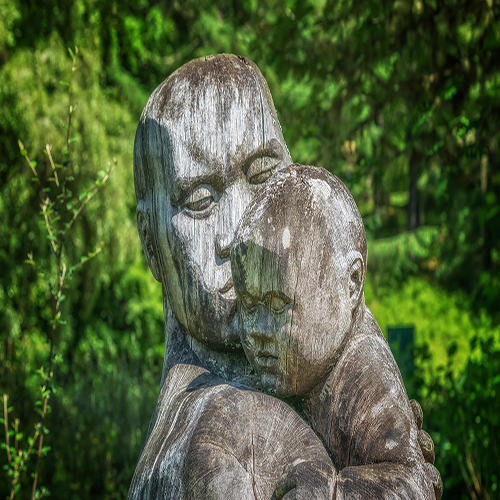Imagine this: you are an 11-year-old child, puberty is ascending, you are self-conscious about everything on the inside and outside of your body, and emotions are hitting hard. Those times are tough. Probably some of the hardest times in a young child’s life. With your friends also approaching these times, it can be even harder to go through it alone because you are embarrassed to even discuss it. The only thing that can make the situation even worse is your parents not helping you willingly and making you feel worse for going through these changes. We call that toxic parenting.
A study conducted in Sydney in the last few years came with a conclusion that 22% of mothers and 14% of fathers were considered toxic. These results are shocking to read because they are such a high number and these numbers will only continue to increase.
We suggest you learn to the end. There may be some traits you didn’t realize were considered toxic and we can help you understand what toxic parenting is.
Number 1: Using children for attention on social media.
We see endless amounts of baby, toddler, child, teen, and young adult pictures flooding our social media accounts. You come across camping trips, milestones met, and other wonderful achievements done by all of these kids. Have you ever noticed the one parent, or a few, that only post negative things about their child? How ill, physically or mentally, their child is? They display their children’s problems for the world to see and hear. Have you also noticed that really the focus is on them? How hard can it be to be a parent to a child with all of these problems?
Toxic parenting can be shown right in your face, flashing on your screen, and you may not even realize it. These toxic parents will normally post these pictures without the child’s permission. They will display these problems for everyone to pity them as the parents and create a negative aroma around their kids. They want to showcase their children’s problems to negatively inflict pain while creating a pity party for them. Their goal is to have the condolences and pity flowing toward them from all kinds of directions so they can feel like the important ones in their kids’ dark times.
Number 2: Oversharing.
When a parent is considered toxic, they have a tendency to overshare with their child. Many times a toxic parent, more specifically a toxic mother, will overshare details that are not appropriate for their child to hear. This can include intimate details with their spouse or current partner. They will use the child as emotional support for fights with the other parent.
Even if they are upset with their parents, many children of narcissistic parents will feel the need to be there and console them. They were raised to be there for their parents no matter how much bullying or abuse they encountered.
Non-toxic parents don’t spill their relationship or work problems onto their children. They will usually run to a spouse, a friend, a family member around the same age, or even a therapist. Teenagers and young adults are still like sponges and they absorb all negative feelings you have and they just keep them concealed.
Number 3: Boundaries.
To continue with our boundaries discussion, many toxic parents can continually become toxic to their adult kids as well. By that, we are talking about the parent showing up at the child’s home unannounced and uninvited. They can come over whenever they want but if the child tried to come by without letting the parent know, they would be yelled at and belittled, called selfish for not thinking about the parent and the alone time they need.
Another way boundaries are crossed can be extreme criticism of a child’s life choices. It can be hard to imagine our children all grown up and making their own grown-up decisions.
These toxic parents will usually not just accept their children’s choices but extremely criticize and judge them openly. It can also be difficult as a parent to an adult not to lecture them every time they make a mistake, but you have to let them live and learn. Toxic parents still view their children as too incompetent to make adult decisions and will begin to lecture their adult children. This can create a negative backlash from the kid and a fight can occur.
Number 4: Failure to provide security.
One of the biggest goals as a parent is to provide your child with a sense of security. What that can entail is not only keeping the child safe physically but mentally and emotionally as well. Emotionally abusive parents have a tendency to dissociate themselves from their children and create an almost roommate-like behavior. These parents can be considered emotionally neglectful. They will appear to other parents and important people in the child’s life as an involved parent, but behind closed doors, it is a different story.
Children need someone to stick up for them when they feel like the world is crashing down on them. These parents will make sure to not stick up for their children when the time comes and can give their children bad advice on purpose to see their children fail.
When the child acts on inappropriate advice and the parent is questioned, they will usually lie and claim they would never say that and turn it around on the child. The child will grow up without that secure feeling you need and can carry those beliefs into future relationships, friendships, and their own kids as well.
Number 5: They do not let their child express their feelings.
On top of the hundreds of jobs, a parent has, one important job is to teach their kids to express their emotions, good or bad. Parents are supposed to help their children express these many emotions in a healthy way, but what happens when these emotions are forbidden to be expressed? The child can try to talk about how they aren’t happy when the parent says this about them or makes these types of jokes.
When children are upset about something the parent said or the way something runs in the house, they’ll want to discuss it with their parents. Toxic parents forbid those kinds of discussions. Living with these toxic parents can be very one-sided. The parents will want to hear all about how great it is when they do this and this for the child, but the moment something is wrong or the child doesn’t like something, they shut the child down.
Many times a parent will reverse these negative feelings the child has and turn them back onto the child. They are doing what is called gaslighting. Gaslighting is a typical tactic used by narcissistic people when they want to detour negative feelings away from them and the relationship. The parent will make the child feel entitled or over dramatic and begin to use strategies that will make the child feel guilty or crazy for feeling these emotions. Most children are not aware of what gaslighting is and that can lead to years of abuse. Those years of abuse can be detrimental to their mental and social health.
Number 6: Toxic joking.
As parents and first of all, human beings, we joke around with each other all of the time. We will make funny insulting jokes to our friends or family with the intention of making them laugh. Sometimes there is some truth behind the jokes but we use the joke to hide how we truly feel. We do the same type of joking with our children sometimes, especially when they do something silly or unintelligent, which can be often as children are constantly learning.
What about when these insulting jokes start becoming frequent? You specifically pick one child in the family to be the butt of jokes. Toxic family signs include picking on one child, and making jokes about the child’s appearance, grades, or friend choices. The parent can say things such as, “Hey, looking a little tired today, huh? Might explain the bags under your eyes. Oh I’m just joking! Don’t be too upset about it!”, or, ” May need to lay off those desserts for a while, those jeans are going to start tearing!”, then continue to laugh and tell the child they are just joking around.
Toxic parents may continue to make the same type of jokes till the child changes their appearance or something about them that is getting all of the jokes. The parent will then find something else to joke about because they satisfied the parent for one aspect.
Number 7: They’re upset when the child is happy.
Parents usually want their children to be happy and live their best life. Toxic parents usually can be jealous when their child is happy. When a child is getting a lot of friends or excelling in school, the parent can grow to resent the child. Children of narcissists can become a scapegoat and they are already too far in before they even realize they are the scapegoat.
These parents can become resentful if the child is doing better than they were at that age. This can seem odd to any normal person because we want our children to do better than us, that’s why we try to raise them to think and act better. Toxic parents will discourage their achievements so the child will feel bad for doing better than the parents.
They’ll also guilt-trip the child about how they feel like a failure as a parent to drive the attention away from the child. These tactics will teach a child that their achievements are not as important as their parent’s. These feelings will cause uneasiness when discussing their achievements and can lead the child to stop trying to better themselves so it will please the parents.
The parent’s goal is to make the child feel the same way they do in life. It is up to the child whether they recognize that these emotions are not normal and break the cycle or continue to use these toxic emotions on their own kids.
Read More: How to Deal With a Narcissistic Mother (Stop Her!)
Sharing Is Caring!






